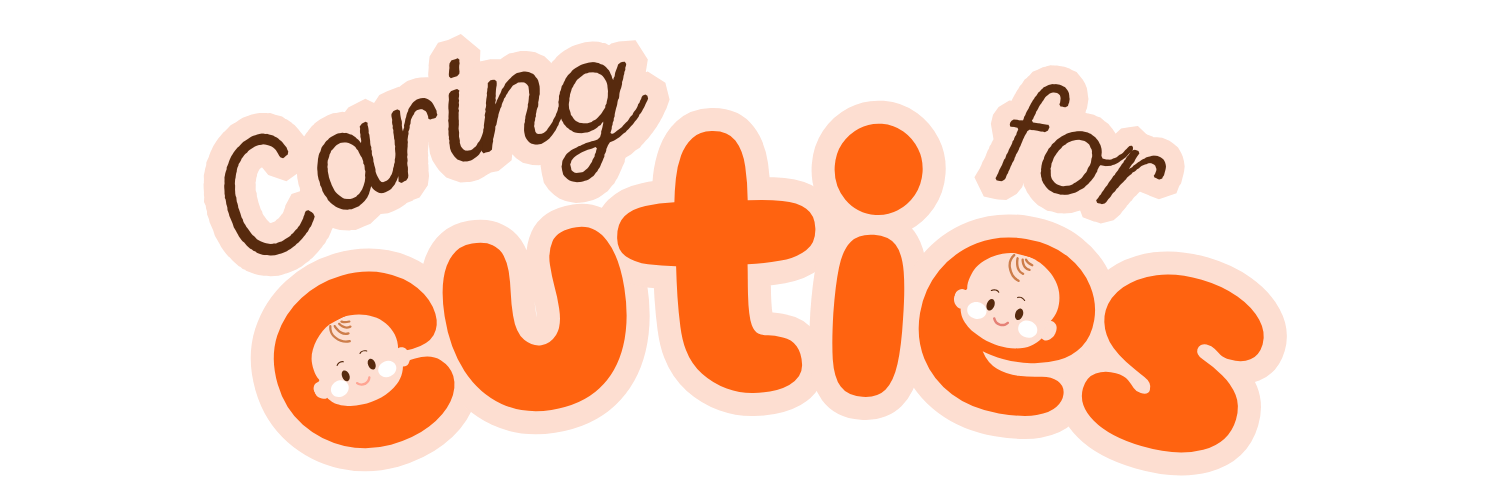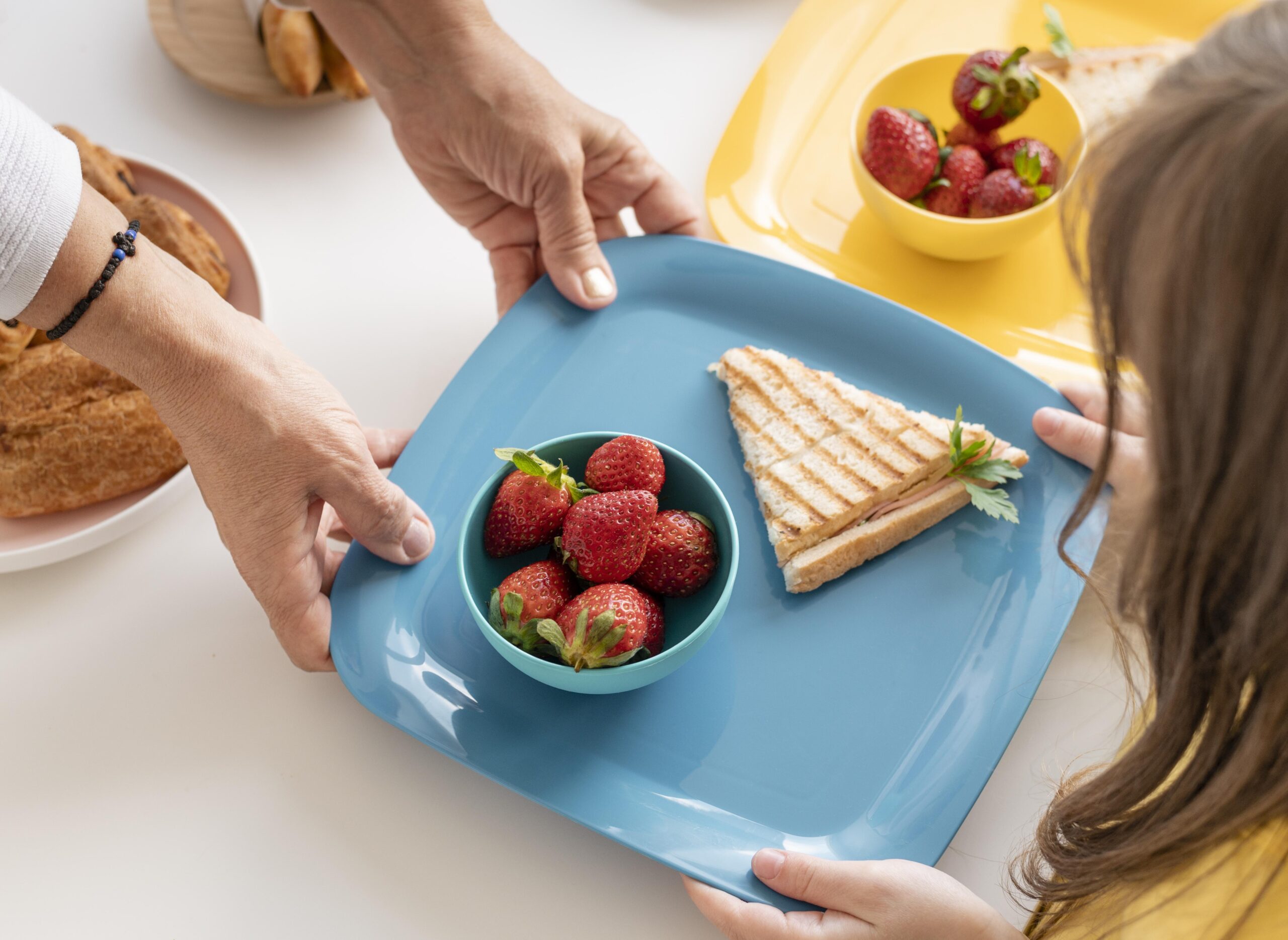As parents, making sure our preschoolers’ nutrition is on point is key. But with so many diet tips and changing rules, it’s hard to know what to do. How can we help our kids eat well and enjoy it?
The answer is to learn about preschoolers’ nutrition basics. Then, we can use simple ways to make mealtime good and fun.

Key Takeaways
- Discover the essential nutrients preschoolers require for optimal growth and development.
- Learn how to create balanced meal plans that meet your child’s daily nutritional needs.
- Explore healthy breakfast ideas that fuel your preschooler’s body and brain.
- Uncover smart snacking strategies to keep your little one energized and satisfied.
- Tackle the challenges of picky eating with practical solutions and creative approaches.
Understanding Preschoolers Nutrition Fundamentals
Proper nutrition is key for preschoolers’ health and growth. As parents, knowing the essential nutrients and daily needs is vital. This knowledge helps our children grow strong and smart.
Key Nutrients for Growing Bodies
Preschoolers need a diet full of important nutrients for their fast growth. Some of the key nutrients include:
- Protein for muscle development
- Calcium and vitamin D for strong bones and teeth
- Iron for healthy blood and energy levels
- Omega-3 fatty acids for brain function
- Vitamins A, C, and E for immune system support
Daily Nutritional Requirements
The daily nutritional needs of preschoolers change based on age, activity, and growth. As a general guideline, preschoolers should aim for:
- 1,000-1,600 calories per day
- 25-35 grams of protein
- 16-24 grams of dietary fiber
- Adequate amounts of key vitamins and minerals
Impact on Development
Good health and nutrition for preschoolers affects their growth and learning. A balanced diet helps with:
- Healthy growth and weight management
- Enhanced brain function and academic performance
- Stronger immune system and reduced illness
- Improved mood and behavior
Understanding preschoolers’ nutritional needs helps parents make better choices. This supports their child’s health and sets a good example for eating well.
Creating Balanced Meal Plans for Your Preschooler
We want our preschoolers to grow well. Meal planning for preschoolers is key. It helps them get all the nutrients they need.
Creating healthy meal plans for your preschooler is a great challenge. Here are some tips to help:
- Make sure your child eats a variety of foods. This includes fruits, veggies, whole grains, lean proteins, and dairy.
- Choose foods that are full of good vitamins and minerals. Think leafy greens, berries, eggs, and fish.
- Try to avoid foods that are too processed or have a lot of sugar. They can lead to weight problems and other issues.
- Let your child try new foods. This helps them discover new tastes and textures.
- Let your preschooler help pick out healthy foods and help cook meals. It makes them more excited to eat.
| Meal | Example Menu |
|---|---|
| Breakfast | Whole-grain oatmeal with fresh berries and a side of scrambled eggs |
| Lunch | Grilled chicken breast, roasted sweet potato, and steamed broccoli |
| Snack | Greek yogurt with sliced apples and a sprinkle of cinnamon |
| Dinner | Baked salmon, quinoa, and a mixed green salad with a light vinaigrette |
By following these tips and adding lots of healthy foods to your preschooler menu, your child will get all the nutrients they need to grow strong.
Healthy Breakfast Ideas for Preschool Children
Starting the day with a healthy breakfast is key for preschoolers. It helps their bodies grow and their minds stay sharp. Here are some easy and tasty breakfast ideas that will make your kids eager to start their day.
Quick and Nutritious Morning Meals
When mornings are rushed, choose simple yet healthy breakfasts. Try whole-grain toast with nut butter and banana slices. Or, go for Greek yogurt with berries and cinnamon.
Egg dishes like scrambled eggs or frittatas are also great. They’re quick and full of protein.
Make-Ahead Breakfast Options
- Overnight oats with grated apple, cinnamon, and honey
- Baked mini frittatas with spinach, bell peppers, and feta cheese
- Healthy breakfast burritos with black beans, scrambled eggs, and tomatoes
Brain-Boosting Breakfast Combinations
Some breakfasts are especially good for preschoolers. They give lots of energy and help their brains grow. Try whole-grain toast with avocado and an egg. Or, make a smoothie with yogurt, spinach, and fruit.
“Breakfast is the most important meal of the day, especially for growing children. Providing a balanced and nutritious start to the day sets them up for success both physically and mentally.”
Smart Snacking Strategies for Growing Kids
Keeping a healthy diet for preschoolers is tricky, especially with snacks. But, with smart strategies, you can give your child good food that helps them grow. Here are some tips for healthy snacking.
Nutrient-Dense Snack Ideas
- Fresh fruits like apples, bananas, or berries paired with a dollop of natural peanut butter
- Cucumber slices or carrot sticks with hummus or Greek yogurt-based dip
- Hard-boiled eggs or cubes of low-fat cheese
- Whole-grain crackers topped with sliced turkey or avocado
- Homemade trail mix with nuts, seeds, and dried fruit
These snacks are full of protein, fiber, and carbs. They keep your preschooler’s energy up and help their body grow.
Portion Control Made Easy
It’s key to watch portion sizes for snacks. Use small containers for snacks to teach your child about right sizes. This stops them from eating too much.
Involve Your Preschooler
Let your child pick and make healthy snacks. This makes them excited to try new foods. It’s a fun way to learn about eating well.

For smart snacking, choose snacks that are full of nutrients. Involve your child and watch portion sizes. This helps them develop good eating habits for life.
Dealing with Picky Eaters: Practical Solutions
Dealing with picky eaters can be tough for parents of preschoolers. But, with creative strategies and a mindful approach, mealtime can be fun and healthy for your kids.
Creative Food Presentation Tips
Make food look good to get picky eaters excited. Try making fruits and veggies into fun shapes. Or, create “art” on their plates with food. Use their favorite characters or themes to make it more appealing.
Involving Kids in Food Choices
Letting kids choose their food can help them try new things. Take them shopping for fruits and veggies. Let them help plan meals. This makes them feel in control and builds a good food relationship.
Managing Food Resistance
Be patient and don’t force them to eat. Don’t turn mealtime into a fight. Offer small amounts of new foods with foods they like. Be ready to try again and again until they accept it.
By using these tips, you can help your preschooler get the food and nutrition for kindergarten they need. And make sure they have a balanced diet for preschoolers.
The Role of Portion Control in Preschoolers Nutrition
It’s very important to make sure preschoolers eat the right amount of food. The right amount helps them get all the nutrients they need. It also stops them from eating too much or too little, which is bad for their growth.
Finding the right serving sizes for kids can be hard. Kids’ hunger levels change a lot. Knowing the right sizes helps parents make meals that are just right for their kids.
Teaching kids about portion sizes helps them eat well for life. When kids learn to eat the right amounts, they’re less likely to get fat or have diet problems later.
Practical Tips for Portion Control
- Use child-sized plates, bowls, and utensils to help regulate portion sizes.
- Serve meals on smaller plates to discourage overeating.
- Offer a variety of healthy foods in appropriate portion sizes rather than large servings of a few items.
- Encourage your child to listen to their body’s hunger and fullness cues rather than finishing everything on their plate.
- Involve your child in meal planning and preparation to help them understand appropriate portion sizes.
Using these tips helps parents make sure their kids get the nutrients they need. It also helps kids learn to eat well for the rest of their lives.
| Food Group | Recommended Portion Size for Preschoolers |
|---|---|
| Grains | 1/2 to 1 cup per day |
| Fruits | 1/2 to 1 cup per day |
| Vegetables | 1/2 to 1 cup per day |
| Protein | 2 to 5 ounces per day |
| Dairy | 2 to 2.5 cups per day |

Remember, every child is unique, and the recommended portion sizes may need to be adjusted based on their individual needs and preferences. Consult with a pediatrician or registered dietitian for personalized guidance on portion control for your preschooler.
Essential Vitamins and Minerals for Preschoolers
Good nutrition is key for preschoolers’ growth. A balanced diet gives them many important nutrients. Knowing the vitamins and minerals they need helps parents keep their kids healthy.
Important Micronutrients
Preschoolers need many nutrients for their growing bodies and brains. Some important ones are:
- Vitamin A: Helps with vision, immune function, and skin.
- Vitamin C: Boosts the immune system and helps bones and teeth.
- Calcium: Crucial for strong bones, teeth, muscles, and nerves.
- Iron: Important for making hemoglobin, which carries oxygen.
- Zinc: Helps the immune system, healing, and senses.
Natural Food Sources
These nutrients come from natural foods like:
| Nutrient | Food Sources |
|---|---|
| Vitamin A | Carrots, sweet potatoes, leafy greens, dairy products |
| Vitamin C | Citrus fruits, bell peppers, tomatoes, broccoli |
| Calcium | Dairy products, leafy greens, fortified cereals |
| Iron | Meat, poultry, beans, lentils, fortified cereals |
| Zinc | Meat, seafood, legumes, nuts, seeds |
Supplement Guidelines
Even with a good diet, some kids might need supplements. Talk to a pediatrician or dietitian to see if your child needs them. They can help pick the right ones and the right amount.
Meal Prepping Tips for Busy Parents
As parents, we face the challenge of feeding our preschoolers well, especially on busy days. Meal planning for preschoolers and healthy meals for preschoolers can seem hard. But, with the right strategies, you can make sure your kids eat well, even when time is tight.
Meal prepping is a great way to make mealtime easier. Spend some time on the weekend or a special day to prep for the week. Here are some tips to help you start:
- Batch Cooking: Cook big batches of healthy proteins, grains, and veggies. They can be reheated for quick meals.
- Meal Prep Containers: Get good, leak-proof containers for your prepped food. It makes making meals easy.
- Freezer-Friendly Meals: Double or triple recipes and freeze them for busy days.
- Planned Leftovers: Cook extra of your favorite dishes to use later in the week.
- Bulk Snack Prep: Prepare healthy snacks like carrot sticks and hummus ahead of time.
With a little planning, you can make sure your preschooler eats healthy meals without the stress of cooking at the last minute. Meal prepping can save you time and make your day easier.

| Meal Prep Tip | Benefits |
|---|---|
| Batch Cooking | Saves time, ensures balanced nutrition |
| Meal Prep Containers | Promotes portion control, simplifies assembly |
| Freezer-Friendly Meals | Provides a ready-to-go backup option |
| Planned Leftovers | Reduces food waste, expands menu options |
| Bulk Snack Prep | Encourages healthy snacking, saves time |
“Meal prepping has been a game-changer for my family. It allows me to provide nutritious meals for my preschooler without the daily stress of figuring out what to make.”
By using these meal planning for preschoolers tips, you can change how you do meals. Your preschooler will get to eat healthy meals every day, even when you’re really busy.
Managing Food Allergies and Sensitivities
As parents of preschoolers, knowing about common food allergens and sensitivities is key. This knowledge helps us keep our children safe and healthy. It ensures they get the nutrients they need to grow well.
Common Allergens to Watch For
Some common food allergens in preschoolers include:
- Peanuts and tree nuts
- Dairy products
- Eggs
- Wheat and gluten
- Soy
- Seafood
Always check labels and ask about ingredients when feeding your preschooler. This helps avoid common allergens.
Safe Food Alternatives
If your child has a food allergy or sensitivity, there are safe options. You can use nut-free butters, dairy-free milk, or gluten-free grains. Try different foods to keep your child’s diet balanced and fun.
Emergency Response Plans
It’s smart to have a plan for emergencies, like allergic reactions. Keep epinephrine auto-injectors ready. Also, tell your child’s caretakers about the allergy and how to react to anaphylactic symptoms.
By managing food allergies and sensitivities, you keep your preschooler safe. This also helps them have a positive relationship with food.
Hydration Guidelines for Preschool Children
Keeping preschoolers hydrated is key for their health and growth. Their bodies grow fast and they are very active. So, it’s important to make sure they drink enough water all day.
By following the right hydration tips, parents can help their kids stay healthy. This is important for their health and nutrition.
Daily Fluid Intake Recommendations
The American Academy of Pediatrics says kids aged 4-6 should drink 5-7 cups (40-56 ounces) of fluids daily. This can be water, milk, and other healthy drinks. The exact amount needed can change based on things like the weather, how active they are, and their own needs.
Importance of Hydration
- Supports brain function and cognitive development
- Aids in proper digestion and nutrient absorption
- Regulates body temperature and prevents dehydration
- Promotes healthy kidneys and urinary tract
- Boosts energy levels and physical performance
Healthy Hydration Habits
- Offer water throughout the day, including with meals and snacks
- Provide milk or milk alternatives as a nutritious beverage option
- Limit sugary drinks like juice, soda, and sports drinks
- Encourage your preschooler to drink water when thirsty
- Incorporate hydrating foods like fruits and vegetables into their diet
By following these healthy eating and hydration tips, parents can help their preschoolers stay hydrated. This supports their growth and development.
Building Healthy Eating Habits That Last
It’s important to teach preschoolers to eat healthy for their growth. As parents, we help shape their food habits. This will help them stay healthy as adults. Let’s look at ways to teach your preschooler to eat well.
Family Meal Importance
Family meals are key for a child’s nutrition and growth. They help kids learn to eat together and share. Seeing parents eat healthy foods makes kids want to do the same.
Teaching Food Recognition
Teaching kids about food can make them excited about eating right. Take them shopping and talk about food colors and textures. Let them help cook meals. This makes learning about nutrition fun and easy to remember.
Establishing Routines
Having set meal and snack times helps kids eat healthy. A routine makes it easier for them to follow a balanced diet. Don’t let them snack all day. Instead, have set times for meals and snacks.
Using these tips can help your family eat healthy for years. Being consistent, involved, and setting a good example is key. This will help your kids develop healthy eating habits for life.
Special Dietary Considerations and Restrictions
We know how important a good diet is for our preschoolers. Some kids have special needs or restrictions. This could be because of their religion, health, or what they like to eat. It’s key to make sure they get the right food for their needs and respect their unique situation.
Vegetarian and Vegan Diets
If your family follows a vegetarian or vegan diet, it’s vital to make sure your child gets all the nutrients. Foods like lentils, tofu, and plant-based milk are great for getting protein, iron, and calcium. These foods help meet your child’s nutritional needs.
Religious Dietary Restrictions
Some religions have special food rules. For example, Jewish people follow kosher rules, and Muslims follow halal rules. It’s important to know and follow these rules to honor your child’s faith and culture.
Medical Dietary Needs
Children with health issues like food allergies or diabetes need special diets. Working with your doctor to plan meals is crucial. This helps keep your child safe and healthy.
| Dietary Consideration | Key Nutrients to Focus On | Recommended Food Sources |
|---|---|---|
| Vegetarian/Vegan | Protein, Iron, Calcium | Lentils, Tofu, Fortified Plant-Based Milk |
| Kosher/Halal | Protein, Iron, Zinc | Certified Kosher/Halal Meats, Legumes, Whole Grains |
| Food Allergies/Sensitivities | Varies based on allergy | Safe, Allergen-Free Alternatives |
By understanding and meeting these special dietary needs, you can make sure your preschooler gets the right food. This way, you respect their individual needs and preferences. With some creativity and planning, you can give them a balanced diet that supports their health and growth.
Conclusion
We’ve looked at important tips for preschoolers’ nutrition in this guide. Parents can help their kids grow up healthy and strong. We talked about the nutrients they need, how to plan meals, and how to deal with picky eaters.
It’s key to keep their diet balanced with vitamins, minerals, and macronutrients. This helps their bodies and minds grow. By eating a variety of foods and staying hydrated, kids can stay healthy for a long time.
It’s also important to teach kids to like healthy foods. This helps them now and in the future. Every child is different, so it’s good to work with doctors to find what’s best for them.
With the right steps and focus on preschoolers nutrition and healthy eating for preschoolers, kids can do great. Parents play a big role in helping them grow strong and healthy.
FAQ
What are the key nutrients preschoolers need for proper growth and development?
Preschoolers need a diet full of protein, carbs, healthy fats, vitamins, and minerals. These help them grow physically, think clearly, and get along with others.
How can parents create a nutritious meal plan for their preschooler?
Mix foods like fruits, veggies, whole grains, lean proteins, and dairy. Try different colors, tastes, and textures. This ensures your child gets all the nutrients they need.
What are some healthy breakfast ideas for preschoolers?
Good breakfasts include oatmeal with fruit, whole-grain cereal, scrambled eggs, and yogurt parfaits. Smoothies with fruit and milk or yogurt are also great.
How can parents deal with picky eaters in the preschool years?
Involve your child in meal planning and cooking. Offer many healthy choices and make food fun. Be patient and keep trying new foods.
What is the importance of portion control for preschoolers?
Right portions help preschoolers get the nutrients they need. Use sizes that fit their age and watch for hunger and fullness signs.
How can parents meal prep to ensure their preschooler has healthy options available?
Meal prep by cooking in batches and freezing meals. Prepare snacks and plan quick, healthy lunches and dinners for weekdays.
What are some common food allergies and sensitivities in preschoolers?
Common allergens include peanuts, tree nuts, dairy, eggs, wheat, soy, and shellfish. Know these and have a plan for any allergic reactions.
How can parents establish healthy eating habits that last for their preschooler?
Make family meals a priority and teach your child about food. Keep routines for meals and snacks. Involve your child in food choices to build a positive food relationship.
What special dietary considerations should parents be aware of for their preschooler?
Know about dietary restrictions like vegetarian or vegan diets. Also, consider any medical needs. Talk to a healthcare professional to meet your child’s needs.





